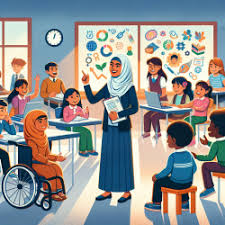Introduction
In the realm of speech-language pathology and mental health, understanding the nuances of psychotic and affective symptoms in youth is crucial for developing effective interventions. A recent study titled A comparative study of psychotic and affective symptoms in Rwandan and Kenyan students provides valuable insights into how historical and environmental factors influence mental health outcomes in adolescents. This blog aims to explore the findings of this study and discuss how practitioners can leverage this knowledge to improve therapeutic outcomes for children.
Research Overview
The study conducted by Owoso et al. (2018) involved administering the Washington Early Recognition Center Affectivity and Psychosis (WERCAP) Screen to 2,255 Rwandan students and 2,800 Kenyan students. The objective was to compare the prevalence, frequency, and functional impairment related to affective and psychosis-risk symptoms across these groups. The study revealed significant differences in symptom load and functional impairment, particularly highlighting the impact of the Rwandan genocide on mental health decades later.
Key Findings
- Rwandan students born before the 1994 genocide exhibited higher psychotic and affective symptom loads compared to those born after.
- Rwandan students generally showed higher symptom burdens than their Kenyan counterparts, with significant gender differences observed in psychotic symptoms among Rwandan females.
- Functional impairment from symptoms was more pronounced in Rwandan students, suggesting long-term effects of the genocide and war.
Implications for Practitioners
For practitioners, these findings underscore the importance of considering historical and environmental contexts when assessing and treating youth. Here are some actionable insights:
- Contextual Assessment: Incorporate questions about historical and environmental factors into assessments to better understand the underlying causes of symptoms.
- Gender-Sensitive Approaches: Develop gender-sensitive therapeutic approaches, particularly for Rwandan females who may experience higher psychosis-risk symptoms.
- Longitudinal Monitoring: Engage in longitudinal monitoring of at-risk youth to track symptom progression and adjust interventions accordingly.
Encouraging Further Research
While this study provides a foundational understanding, there is a need for further research to explore the long-term impacts of conflict on youth mental health. Practitioners are encouraged to contribute to this body of research by conducting longitudinal studies and exploring innovative therapeutic approaches tailored to these populations.
To read the original research paper, please follow this link: A comparative study of psychotic and affective symptoms in Rwandan and Kenyan students.










